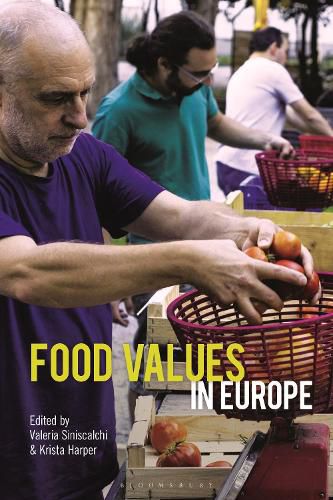Readings Newsletter
Become a Readings Member to make your shopping experience even easier.
Sign in or sign up for free!
You’re not far away from qualifying for FREE standard shipping within Australia
You’ve qualified for FREE standard shipping within Australia
The cart is loading…






What can a focus on food projects in Europe tell us about contemporary social processes and cultural debates? Valeria Siniscalchi and Krista Harper show how food becomes a marker of identity and resistance to social exclusion, and how food values become tools for transforming power dynamics at the local level and beyond. Through the comparison of food-centered movements across Europe, the book explains how these forms of mobilization express ideologies as well as economic and political objectives.
The chapters use an ethnographic approach to focus on the transformation of values carried by individuals and groups in relation to food in Portugal, Greece, Latvia, Moldova, Denmark, the UK, Italy, and France. Contributors analyze food values, as expressed in daily life and livelihoods, through specific practices of production, exchange, and consumption. Topics covered include Prague’s urban agricultural scene, the perception of poverty in Moldova, shepherds’ protests in Sardinia, and organic food cooperatives in Catalonia.
$9.00 standard shipping within Australia
FREE standard shipping within Australia for orders over $100.00
Express & International shipping calculated at checkout
What can a focus on food projects in Europe tell us about contemporary social processes and cultural debates? Valeria Siniscalchi and Krista Harper show how food becomes a marker of identity and resistance to social exclusion, and how food values become tools for transforming power dynamics at the local level and beyond. Through the comparison of food-centered movements across Europe, the book explains how these forms of mobilization express ideologies as well as economic and political objectives.
The chapters use an ethnographic approach to focus on the transformation of values carried by individuals and groups in relation to food in Portugal, Greece, Latvia, Moldova, Denmark, the UK, Italy, and France. Contributors analyze food values, as expressed in daily life and livelihoods, through specific practices of production, exchange, and consumption. Topics covered include Prague’s urban agricultural scene, the perception of poverty in Moldova, shepherds’ protests in Sardinia, and organic food cooperatives in Catalonia.